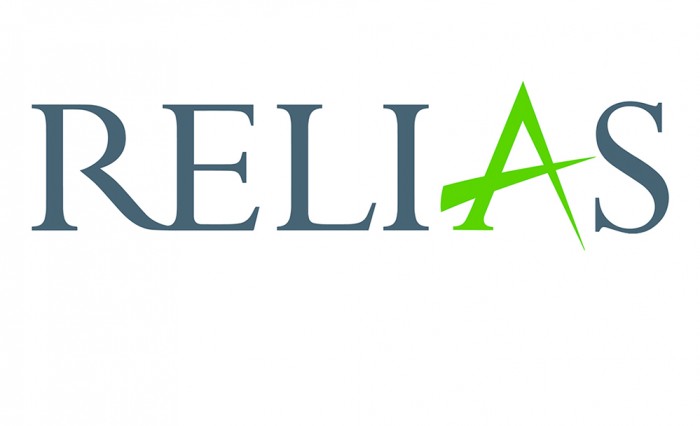The Centers for Medicare and Medicaid Services (CMS) has released the calendar year (CY) 2022 Medicare Physician Fee Schedule (MPFS) proposed payment rule. Some of the proposed provisions include:
CY 2022 Physician Fee Schedule (PFS) Payment Rate Update
With the proposed budget neutrality adjustment to account for changes in RVUs (required by law), and expiration of the 3.75 percent payment increase provided for CY 2021 by the Consolidated Appropriations Act, 2021 (CAA), the proposed CY 2022 PFS conversion factor is $33.58, a decrease of $1.31 from the CY 2021 PFS conversion factor of $34.89. The PFS conversion factor reflects the statutory update of 0.00 percent and the adjustment necessary to account for changes in relative value units and expenditures that would result from our proposed policies.
Evaluation and Management (E/M) Visits
CMS is engaged in an ongoing review of payment for E/M visit code sets. For CY 2022, there are several proposals that take into account the recent changes to E/M visit codes, as explained in the AMA CPT Codebook, which took effect January 1, 2021. CMS is also proposing to clarify and refine policies that were reflected in certain manual provisions that were recently withdrawn.
CMS is proposing to refine their longstanding policies for split (or shared) E/M visits to better reflect the current practice of medicine, the evolving role of non-physician practitioners (NPPs) as members of the medical team, and to clarify conditions of payment that must be met to bill Medicare for these services. In the CY 2022 PFS proposed rule, the following is proposed:
- Definition of split (or shared) E/M visits as evaluation and management (E/M) visits provided in the facility setting by a physician and an NPP in the same group.
- The practitioner who provides the substantive portion of the visit (more than half of the total time spent) would bill for the visit.
- Split (or shared) visits could be reported for new as well as established patients, and initial and subsequent visits, as well as prolonged services.
- Requiring reporting of a modifier on the claim to help ensure program integrity.
- Documentation in the medical record that would identify the two individuals who performed the visit. The individual providing the substantive portion must sign and date the medical record.
Telehealth Services under the PFS
CMS continues to evaluate the temporary expansion of telehealth services that were added to the telehealth list during the COVID-19 public health emergency (PHE) and is proposing to allow certain services added to the Medicare telehealth list to remain on the list to the end of December 31, 2023, so that there is a path to evaluate whether the services should be permanently added to the telehealth list following the COVID-19 PHE. Section 123 of the CAA removed the geographic restrictions and added the home of the beneficiary as a permissible originating site for telehealth services when used for the purposes of diagnosis, evaluation, or treatment of a mental health disorder, and requires that there be an in-person, non-telehealth service with the physician or practitioner within six months prior to the initial telehealth service, and thereafter, at intervals as specified by the Secretary.
CMS is proposing to require an in-person, non-telehealth service be provided by the physician or practitioner furnishing mental health telehealth services within six months prior to the initial telehealth service, and at least once every six months thereafter. CMS is requesting feedback on whether a different interval may be necessary or appropriate for mental health services furnished through audio-only communication technology. CMS is also seeking comment on how to address scenarios where a physician or practitioner of the same specialty/subspecialty in the same group may need to furnish a mental health service due to unavailability of the beneficiary’s regular practitioner.
CMS is also soliciting comment on: (1) whether additional documentation should be required in the patient’s medical record to support the clinical appropriateness of audio-only telehealth; (2) whether or not we should preclude audio-only telehealth for some high-level services, such as level 4 or 5 E/M visit codes or psychotherapy with crisis; and (3) any additional guardrails we should consider putting in place in order to minimize program integrity and patient safety concerns.
Therapy Services
CMS is implementing the final part of section 53107 of the Bipartisan Budget Act of 2018, which requires CMS, through the use of new modifiers (CQ and CO), to identify and make payment at 85 percent of the otherwise applicable Part B payment amount for physical therapy and occupational therapy services furnished in whole or in part by physical therapist assistants (PTAs) and occupational therapy assistants (OTAs), for dates of service on and after January 1, 2022.
For CY 2022, in response to numerous stakeholder questions and to promote proper therapy care, CMS is proposing to revise the de minimis standard established to determine whether services are provided “in whole or in part” by PTAs or OTAs. Specifically, CMS is proposing to revise the de minimis policy to allow a timed service to be billed without the CQ/CO modifier in cases when a PTA/OTA participates in providing care to a patient with a physical therapist or occupational therapist (PT/OT), but the PT/OT meets the Medicare billing requirements for the timed service without the minutes furnished by the PTA/OTA by providing more than the 15-minute midpoint (also known as the 8-minute rule).
Overall, the de minimis standard would continue to be applicable in the following scenarios:
- When the PTA/OTA independently furnishes a service, or a 15-minute unit of a service “in whole” without the PT/OT furnishing any part of the same service.
- In instances where the service is not defined in 15-minute increments including: supervised modalities, evaluations/reevaluations, and group therapy.
- When the PTA/OTA furnishes eight minutes or more of the final unit of a billing scenario in which the PT/OT furnishes less than eight minutes of the same service.
- When both the PTA/OTA and the PT/OT each furnish less than eight minutes for the final 15-minute unit of a billing scenario.
Physician Assistant (PA) Services
CMS is proposing to implement section 403 of Division CC of the CAA that authorizes Medicare to make direct payment to PAs for professional services they furnish under Part B beginning January 1, 2022. Medicare currently can only make payment to the employer or independent contractor of a PA. Consequently, PAs could not bill and be paid by the Medicare program directly for their professional services; they also did not have the option to reassign payment for their services or to incorporate with other PAs to bill the program for PA services. Beginning January 1, 2022, PAs would be able to bill Medicare directly for their services and reassign payment for their services.
Vaccine Administration Services Comment Solicitation
Over the last several years, Medicare payment rates for physicians and mass immunizers for administering certain preventive vaccines (flu, pneumonia and hepatitis B vaccines) have decreased by approximately 30 percent. Given the ongoing stakeholder interest in this issue, the proposed rule includes a comment solicitation to obtain information on the costs involved in furnishing preventive vaccines, with the goal to inform the development of more accurate rates for these services. More specifically CMS is seeking information on:
- The different types of health care providers who furnish vaccines and how have those providers changed since the start of the pandemic.
- How the costs of furnishing flu, pneumococcal, and hepatitis B vaccines compare to the costs of furnishing COVID-19 vaccines, and how costs may vary for different types of health care providers.
- How the COVID-19 PHE may have impacted costs, and whether health care providers envision these costs to continue.
CMS is also seeking stakeholder input on a proposed policy to pay $35 add-on for certain vulnerable beneficiaries when they receive a COVID-19 vaccine at home. CMS is interested in stakeholder input on what qualifies as the “home” and how they can balance ensuring program integrity with beneficiary access. CMS is also seeking comments on whether they should treat these products the same way we treat other physician-administered drugs and biologicals under Medicare Part B.
Opioid Treatment Program (OTP) Payment Policy
CMS is proposing to allow OTPs to furnish counseling and therapy services via audio-only interaction (such as telephone calls) after the conclusion of the COVID-19 PHE in cases where audio/video communication is not available to the beneficiary, including circumstances in which the beneficiary is not capable of or does not consent to the use of devices that permit a two-way audio/video interaction, provided all other applicable requirements are met. CMS is proposing to require that OTPs use a service-level modifier for audio-only services billed using the counseling and therapy add-on code and document in the medical record the rationale for a service being furnished using audio-only services, in order to facilitate program integrity activities.
The proposed rule will be published in the July 23, 2021 Federal Register. Comments will be accepted until September 13, 2021.


















